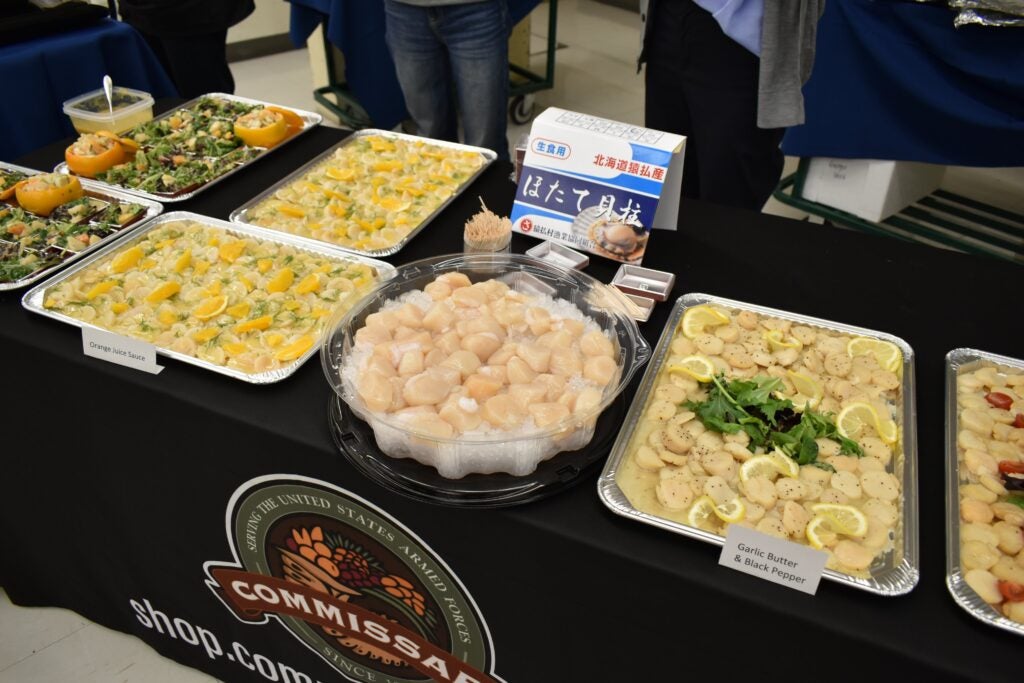US Military Starts Purchasing Japanese Seafood In Response To China Ban
Japanese seafood went on sale for the first time on a United States military base in Japan on October 31, with a shipment of scallops from Hokkaido going on sale at the Yokota Air Base commissary.
The occasion was marked with a ribbon cutting ceremony at the commissary’s seafood section, with U.S. Ambassador to Japan Rahm Emanuel, U.S. Forces Japan deputy commander Marine Corps Brigadier General George B. Rowell, and representatives of the Hokkaido Federation of Fisheries Cooperative Associations in attendance.
Emanuel announced the initiative in an October 30 interview with Reuters, saying that it was a response to China’s ban on Japanese seafood, which he described as part of China’s “economic wars”. The scallops unveiled on Tuesday are part of the first purchase under a long-term contract, with the purchases to eventually expand to all sorts of seafood that will be sold in markets and restaurants on U.S. bases, and served on Navy ships based in Japan.
China declared a total ban on Japanese seafood imports on August 24, after Japan began releasing treated wastewater from the Fukushima Daiichi nuclear power plant. Beijing has claimed safety concerns over tritium in the wastewater, despite assurances by the International Atomic Energy Agency that the treated water was safe to release into the Pacific.
Emanuel has previously eaten sashimi made with fish caught off Fukushima to demonstrate the safety of seafood following the start of wastewater release. In late September, he released photographs taken by American P-8 Poseidon maritime patrol aircraft of Chinese fishing vessels continuing to fish inside Japan’s Exclusive Economic Zone, despite the ban on imports from Japan.
A third round of wastewater disposal from the Fukushima Daiichi plant began on Thursday, with the disposal process expected to continue for decades as part of the power plant’s decommissioning following its meltdown caused by damage from the 2011 Tohoku earthquake and tsunami.

